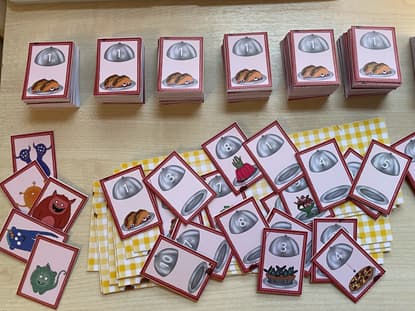Playing along the number line
Designing and evaluating a number game to improve early numeracy.
Dr Francesco Sella, Professor Tim Jay, and Ella James-Brabham are undertaking a research project funded by the Nuffield Foundation to co-develop a number board game with teachers and children. The findings could have implications for the tools schools use to help support the development of children’s early numerical skills.

Playing with number line games improves a range of numerical skills, including counting, identifying numbers, and comparing the magnitude of numbers (e.g., Ramani & Siegler, 2008). Simple board games show promise for decreasing gaps between low-income and high-income children as they are more beneficial for children with lower number knowledge (Ramani & Siegler, 2011) and are practical and effective within a classroom context (Ramani et al., 2012).
While most of the linear board games involve counting forward, recent research by Dr Francesco Sella, at Loughborough University, has highlighted how the ability to count backwards may reflect a more advanced understanding of counting. Accordingly, children develop a better understanding of number magnitude when they can tell the result of removing one item from a set (i.e., counting backward; Sella & Lucangeli, 2020).
Following these findings, we are developing a board game which entails both counting forward and backwards. After designing the game in collaboration with expert teachers and supported by children’s feedback, we will evaluate whether playing the linear board game number, especially the counting backwards condition, improves early numeracy in young children.
Related information
- Blog post - Why might number board games boost children's early number skills?
- Project overview - Designing and evaluating a novel board game to improve early numerical skills.
- Sella, F., & Lucangeli, D. (2020). The knowledge of the preceding number reveals a mature understanding of the number sequence. Cognition, 194, 104104.